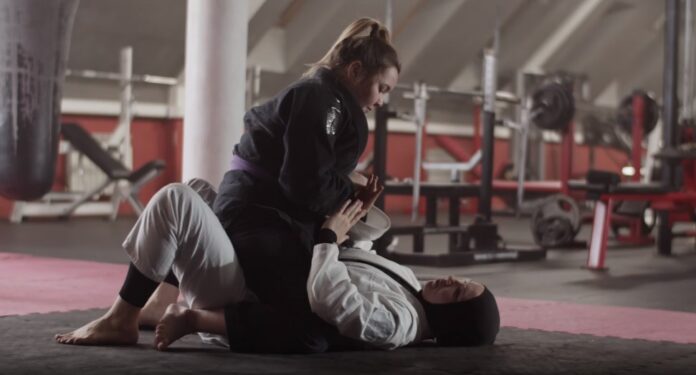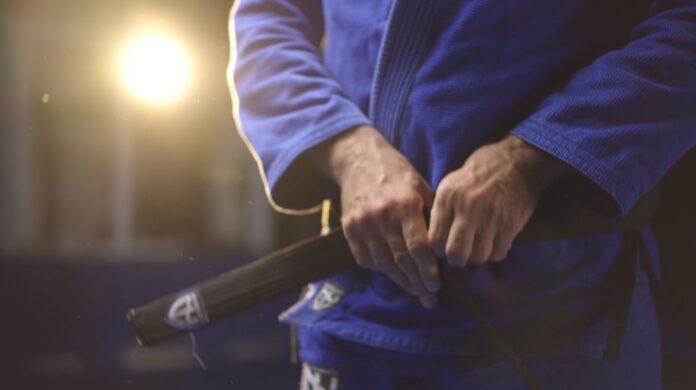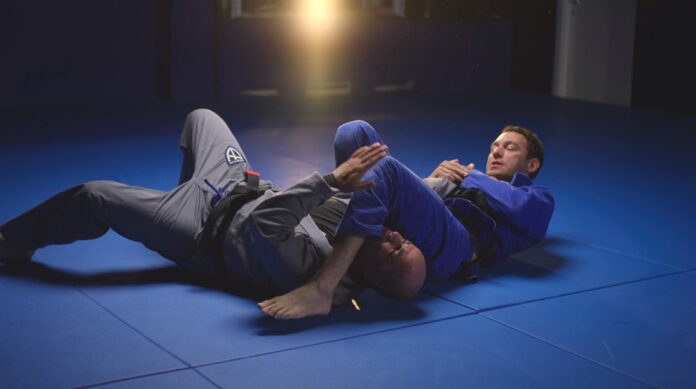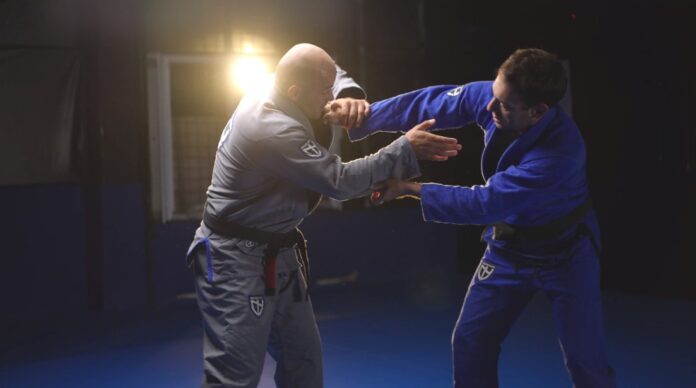Jiu-Jitsu, originating from Japan, is a popular martial art that focuses on grappling and ground fighting. By learning techniques and strategies, anyone could benefit from this combat sport, for self defense or simply exercise.
Beginning a journey in Jiu-Jitsu encourages both physical fitness and mental resilience, but successful practice requires more than just stepping on the mat; it includes understanding the art, practicing the basics, and finding the right dojo. Dojos, or training centers, can significantly influence a learner’s Jiu-Jitsu experience.
Modern dojos offer more than just training facilities; they provide a conducive environment for learners to foster discipline, build strength, and interact with a community of like-minded individuals. Consistent and proper training paves the way for a rewarding education in Jiu-Jitsu.
An Overview of Jiu-Jitsu: A Beginner’s Perspective

At its core, Jiu-Jitsu is more than a martial art – it’s a way of life that fosters mental acuity, physical fitness, and character building. It embodies principles of respect, discipline, and resilience, curating not just fighters but well rounded individuals.
As a beginner, understanding these philosophies is important for effective learning. The core tenets of challenge practitioners to face their weaknesses head-on, turning moments of adversity into opportunities for development and mastery.
Regular practice helps improve aerobic and anaerobic fitness while enhancing muscle strength. It’s also lauded for enhancing flexibility, balance, and coordination. Engaging in San Diego Jiu-Jitsu can boost mental health by relieving stress and promoting self-confidence.
Despite being a combat sport, it is not solely about competition or combat; rather, Jiu-Jitsu encourages self-improvement and progress, making it a rewarding practice for all, regardless of age, ability or skill level.
Key Training Tips for Beginners in Jiu-Jitsu
As a beginner entering the world of Jiu-Jitsu, it’s essential to start by mastering the basics. This includes foundational moves, groundwork techniques, and self-defense moves. Be patient with yourself and appreciate that even the simplest techniques take time to master.
Contrary to common belief, Jiu-Jitsu isn’t just about brute strength but also relies heavily on technique, strategy, and timing. Incorporating strength and conditioning into your training regimen can enhance your overall performance, however, make sure not to neglect flexibility and endurance training, as all these physical attributes contribute to a well-rounded Jiu-Jitsu practice.
Consistency in training can’t be overemphasized. Regular practice habituates your body to the moves and techniques, enhancing fluidity and making execution second nature to you. Equally important is maintaining a beginner’s mindset irrespective of how much you progress.
This mindset, characterized by openness, and humility, can foster a lifelong passion for learning and growth in Jiu-Jitsu. Don’t compare your progress with others – your only competition is yourself. Ensure you’re finding a balance between training and rest. Overtraining may lead to fatigue, burnout, or even injury, derailing progress.
Methods to Improve Your Jiu-Jitsu Skills

Pursuing regular sessions will enable you to perfect your techniques, gain a better understanding of tactical application, and ultimately enhance your skills all the more. Initially, it is quite possible that certain techniques might not fall into place right away or you might struggle with remembering the sequences, but it is essential to persist and keep trying. Jiu-Jitsu, much like any other craft, requires patience, effort, and a sizable investment of time.
To truly propel your Jiu-Jitsu skillset forward, incorporating group sessions and community practices into your training routine can prove to be extremely beneficial. Such environments can encourage you to work harder and learn from other’s mistakes and successes.
It’s true that failure can hit hard, especially in a discipline as demanding as Jiu-Jitsu, but it’s important to view these instances as stepping stones rather than setbacks. Failures and successes both serve as fantastic learning tools. Seeking guidance from experienced practitioners, seniors, and coaches can also bridge gaps in your knowledge and provide instrumental insights when it comes to nurturing your skills.
Choosing the Right Dojo: Factors to Consider
Choosing the right dojo significantly influences your Jiu-Jitsu learning experience. One of the primary factors to consider is the environment the dojo provides. This encompasses not only the logistical aspects such as cleanliness, hygiene protocols, and the availability of necessary equipment but also the overall learning atmosphere. An encouraging, respectful, and positive environment goes a long way in motivating learners and promoting better interactions amongst peers.
The coaches leading the classes should demonstrate an appreciable level of skill, a deep understanding of the Jiu-Jitsu techniques, and effective teaching methodologies to ensure that you get the best out of your training sessions. Jiu-Jitsu is one of many types of martial arts gaining popularity and traction. A dojo with a good reputation often has the resources and time to provide you with excellent classes.
The dojo’s culture around learning and progression can also be instrumental in shaping your personal growth in Jiu-Jitsu. Your chosen dojo should also offer a flexible and convenient class schedule, catering to your personal commitments and available times. Try to opt for a dojo with smaller class sizes, if possible, as this leads to more personalized attention, enhancing your learning experience.

Learning Jiu-Jitsu includes understanding the discipline, incorporating regular practice, and selecting the most suitable dojo. For a beginner, dedicating time in these fundamental steps is necessary for molding strong skills and establishing an enduring association with this combat sport with a rich cultural background. Through commitment and tenacity, and with the correct training methodology, you’re certain to derive the diverse benefits of this combat sport.
As you initiate training on the mat, endeavor not only to train rigorously but also relish your process. Appreciate the learning phase, take pleasure in your improvement, and let Jiu-Jitsu act as a medium for connecting with new people, identifying new potentials, and ushering in a thrilling novel phase of your life.







